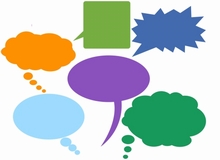The Past and Future of the Rapidly Growing Field of Comic and Manga Translation
December 5, 2014

Japanese manga has gained international attention as leading entertainment contents. With globalization and the proliferation of mobile devices, translation services in this field are in high demand. In this article we will look at some of the challenges in translating comics and manga as well as its history and future.
Challenges in Translating Comics - Language, Culture, and Onomatopoeia
Translating comics and manga is not as glamorous and fun of a job as it appears. First of all, to become a comic or manga translator you need to have native-level fluency in the target language. Particularly with translating Japanese manga, besides advanced language skills, you also need to have the wit and intimate understanding of Japanese culture to be able to translate jokes and expressions unique to the culture in a way that readers of the target country will understand.
Take "sound effect" words often used in manga like "shiiin" or "ban!" The latter is used to express hitting an object, similar to "bam!" in English comics, but "shiiin" is used to denote silence. How would you express something like that in English?
Words such as these that imitate the sounds of the thing or action they refer to, like the examples above or "tick tock" and "meow", are called "onomatopoeias". They are one of the most commonly mentioned challenges in translating Japanese manga. Although such words are commonly used in Japanese, even conversationally, many have no direct equivalent in other languages. How do comic and manga translators overcome such challenges?
"Erikativ" that Changed the World of Comic Translation
Pioneering German comic translator Erika Fuchs came up with many innovative solutions to such problems. When translating Disney's Mickey Mouse comic that had been published in the United States, she created German names for many of the characters. For example, the Beagle Boys, a group of characters that appear in the comic, were renamed "Panzerknacker" (the German word for "safe cracker"). At times she would completely deviate from the original English in her translations, often incorporating jokes not found in the original.
One of the most innovative ideas that came out of her creative efforts was that of shortening verbs to their stems to create onomatopoeias, known today as the "Erikativ" form (her first name made to resemble a grammatical term like infinitive). One example is adding the word "freu" (German for "happy") to express when a character is happy. Comic translation evolved thanks to bold ideas such as this.
The Future of Comics and Manga Translation
According to Italian manga translator Simona Stanzani, many people still think that Japanese manga is "lowbrow", full of nothing but sex and violence, so many manga translators feel embarrassed of their job.
However, as the market grows, the job of manga translator is sure to become more accepted and mainstream. And the proliferation of e-book readers will be a great boost for manga translators, as it will lead to a greater number of manga readers.
Related Services
| << Leveraging Translation Memory Tools to Improve Translation Quality | Aspects and Challenges of Video Game Translation >> |
To Contact Us Regarding Our Translation Services
For urgent needs, call:
+81-3-5730-6133
